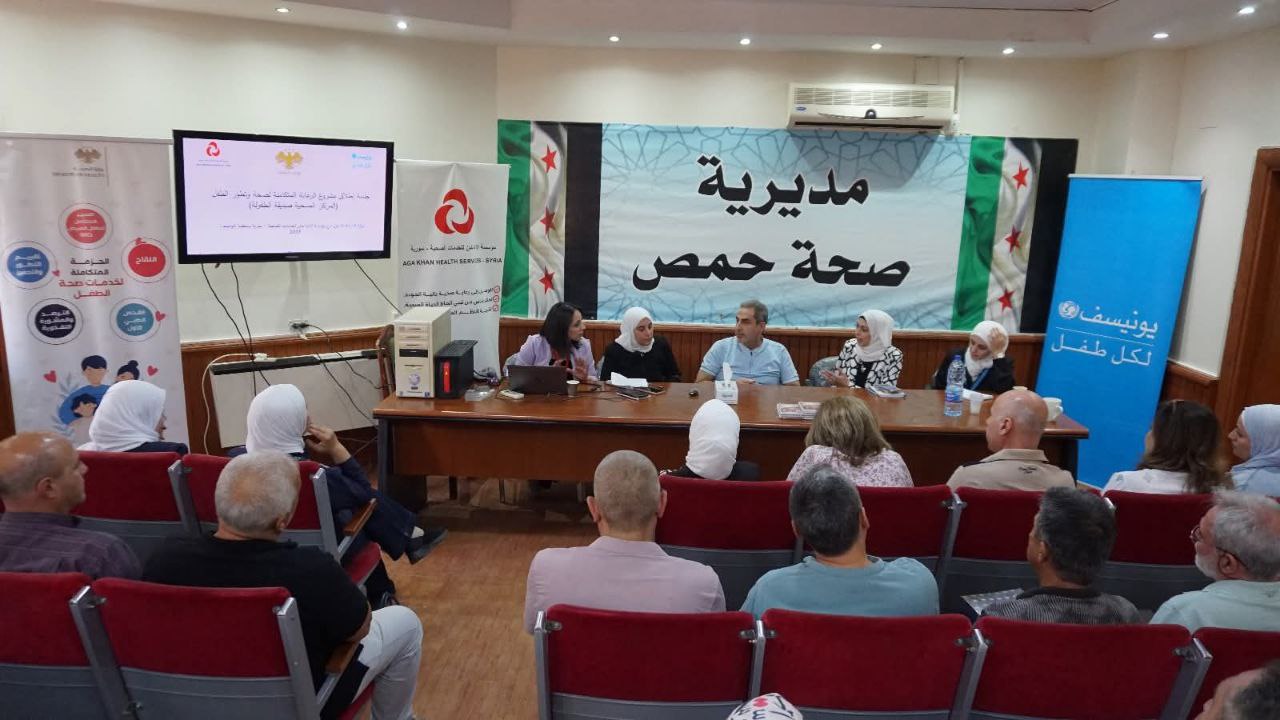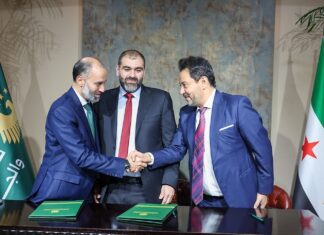 As part of its ongoing humanitarian and development efforts, and in strategic partnership with the Syrian government, the Aga Khan Foundation in Syria is implementing a range of innovative projects targeting the education and health sectors, driven by its commitment to supporting and empowering local communities.
As part of its ongoing humanitarian and development efforts, and in strategic partnership with the Syrian government, the Aga Khan Foundation in Syria is implementing a range of innovative projects targeting the education and health sectors, driven by its commitment to supporting and empowering local communities.
Tamkeen Projects Combat School Dropout
In a serious effort to address one of the most prominent challenges left by the Syrian crisis, the foundation launched “Tamkeen” education projects focusing on increasing access to education for children and adolescents, devoting special attention to the most affected groups: those who have dropped out, or are at risk of dropping out, of school.
These projects provide a vital educational alternative through supportive non-formal instructional programs, representing a lifeline for students who have lost an opportunity to more traditional education.
To achieve this goal, the foundation is currently preparing 17 learning spaces dedicated to non-formal education and early childhood education. These areas extend across several governorates, including Hama, Homs, Aleppo, Damascus, Rural Damascus, and Latakia. The plan includes the rehabilitation of three public schools to become part of this support network.
Integrated Child Health and Development Projects
On the health front, the Foundation’s partnership with the Syrian Ministry of Health extends to supporting the health sector in every possible way, striving to provide the best services to citizens.
One of the most prominent aspects of this cooperation is the launch of integrated Child Health and Development Projects in the governorates of Hama, Homs, Latakia, and Tartous. The Aga Khan Health Services, in cooperation with the Ministry of Health and its directorates in the aforementioned governorates, held a series of sessions to launch these projects, with support from UNICEF.
These projects are based on the principle of adopting a comprehensive and integrated approach to addressing all aspects of child health and development, rather than relying on separate vertical programs. They aim to empower caregivers by improving their communication, play, stimulation, and feeding practices, and by early detection of any disability or developmental delay in children.
Official Endorsement and Ambitious Expansion
Dr. Nazih al-Ghawi, Director of Hama Health, emphasized the critical importance of these projects, describing them as a “qualitative step” seeking to improve the quality of services provided to children. He noted that the projects currently include the accreditation of 24 health centers in Hama Governorate alone, distributed across various regions, with an ambitious plan to expand their scope to include all health centers in the future.
Ghawi explained that these “child-friendly” introduce a components for assessing motor and mental development, enhancing effective communication with families, and implementing interactive feeding concepts.
Through this close partnership between the public sector and international institutions, Syria seeks to rebuild its human capital by targeting children and adolescents, who constitute the cornerstone of a more stable and prosperous future.








